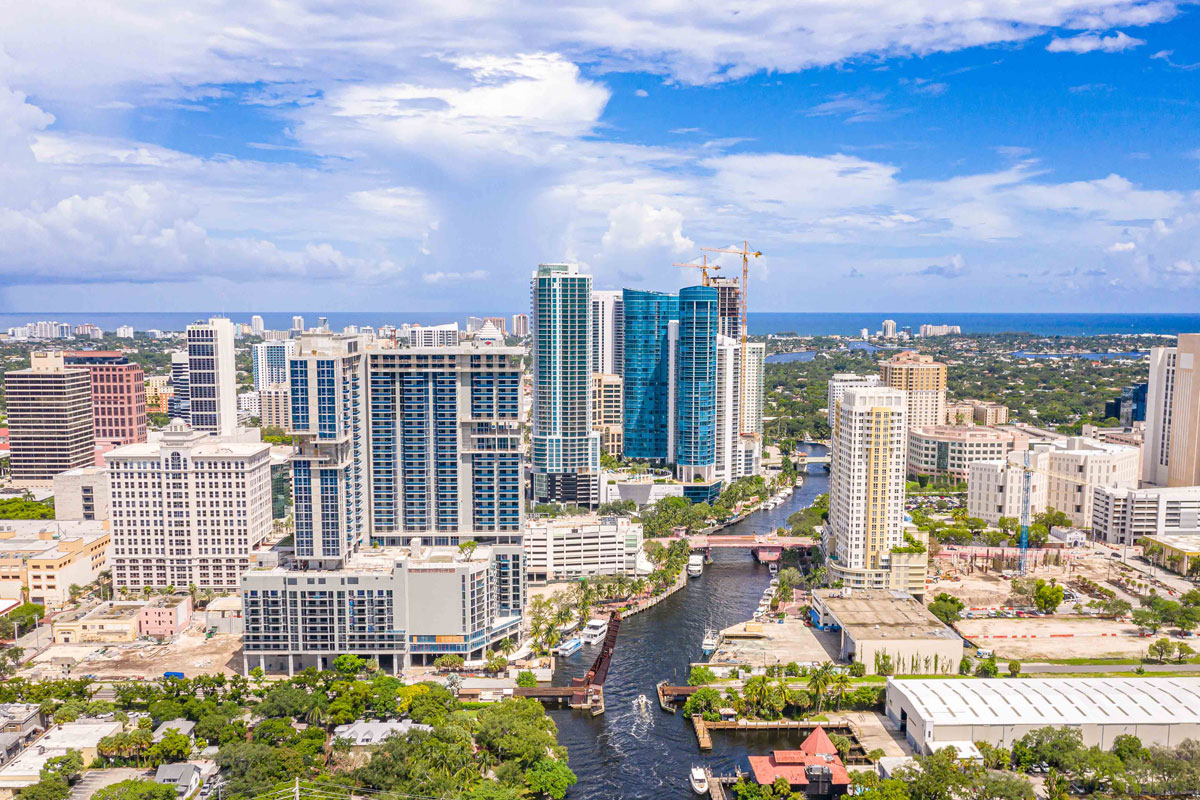Florida Sees Big Migration Gains

Young engineers and recent college graduates see Miami, Houston, and Philadelphia — not San Francisco, New York, or Seattle — as the hot new places to jumpstart a technology or creative economy career.
Why it matters: For some tech CEOs, it’s the perfect time to capitalize on being where the new talent wants to go — and also pay lower taxes in the process, which makes Sun Belt cities in Florida and Texas attractive.
Zoom in: In Lehi, Utah — a haven for tech startups between Salt Lake City and Provo — it’s been easier than usual to lure early-career workers from places like California and New York, said Joseph Woodbury, CEO of Neighbor.com, a peer-to-peer self-storage company.
- Of the employees the startup recruited during the past year, 30% came from another state, and many of them were on the younger side.
- “That’s changed in the past year,” Woodbury told Axios. “It used to be that you waited until 10 to 15 years into your career and then you could make a choice about where you wanted to live. Now it’s like, oh yeah, I came to California for a year, now I can go be where I want to be. “
The big picture: Pandemic moves are redistributing coveted tech workers more evenly across the country after being so heavily concentrated in just a handful of cities for years.
- This is also expected to help spread wealth, job opportunities and startup creation in new places.
Details: According to LinkedIn data, more workers in the software and IT services sectors moved into Miami, Houston, Dallas, L.A. and Denver between March 2020 and February 2021 than in the previous year.
- Meanwhile, more left San Francisco, New York, Seattle, and Boston.
Between the lines: While the data focuses on software engineers and IT gurus, tech companies need much more than that, from HR and marketing to sales and finance workers.
- “Tech is no longer a monolithic industry — now every company is a tech company,” said Julie Samuels, CEO of Tech:NYC. “The industry’s gravity that required people to be in Silicon Valley has loosened.”
- “Issues we used to think of as secondary, like quality of life, are increasingly primary,” she said. “We’re seeing that drive the dynamic around the tech sector nationwide.”
By the numbers: Nearly half of tech workers moved during the pandemic, according to an April survey released Friday by non-profit One America Works.
- Among those who lived in major city centers before 2020, one in five expect to live in a smaller city after the pandemic.
- Younger, non-management employees cited affordability, proximity to friends and family, having enough space and an enjoyable climate as top reasons for choosing home locations.
“I clearly see momentum building and it’s hard for me to imagine that the pandemic won’t be a permanent accelerant of people moving to places that have been historically overlooked,” said AOL co-founder Steve Case, who is CEO of venture capital firm Revolution.
- But it’s still hard to predict the two or three cities that will be the next truly viable tech hubs, he said. “It’s a shake-the-snowglobe moment.”
Flashback: Attracting the “boomerang” workers — those who moved away for first jobs but later return to their hometowns — has been a focus for years for companies in cities like Detroit, Indianapolis, Columbus and Orlando, which lost young talent to booming coastal cities over the past decade.
- When I joined Case on his bus tours of “Rise of the Rest” cities over the past few years, city leaders have touted quality of life, affordable housing, good schools and greater sense of community to lure people back home.
What’s happening: To appeal to younger Millennials and older GenZ’ers, investors and companies are hosting virtual job fairs or offering perks for working remotely in a non-traditional city.
- Revolution’s “Rise of the Rest” Fund, which invests in companies headquartered between the coasts, and education firm 2U today announced a June Tech Talent Tour aiming to educate job seekers about job openings across nearly 20 emerging tech hubs.
- Airbnb expanded its “Try Before You Buy” program, offering gift cards to people who want temporary housing to test-drive a new city before buying a home there.
- Initiatives in Tulsa, Topeka, Northwest Arkansas, Tucson and Savannah are offering financial incentives for people to move there, mostly targeting recent grads or workers in their 20s.
The bottom line: While workers now have new options, the San Francisco Bay Area will always be a draw for people wanting to work in the epicenter of the tech industry.
- “Where young people live this very moment probably doesn’t matter because of the radical experiment in remote work that’s playing out,” said Roy Bahat, head of venture fund Bloomberg Beta, based in San Francisco.
- “In a year, when that fog has lifted, it’s probably going to matter a lot more.”
